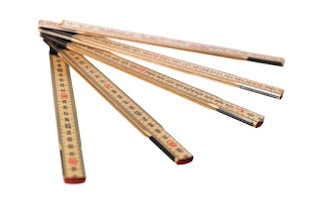Practicing Rules!
Of course there are no rules, other than just do it. But there are good ways to practice and not so good ways. My goal for practice time is that it will invariably lead to the development of sound playing and sound playing habits. And it has to be fun.
Slow Down
Taking it too fast too soon is probably the
number one reason for not making better progress. It’s a good idea to approach
new material by playing it slowly ... in some cases, as slowly as you can stand
it. This gives you lots of time to concentrate on what each limb is doing. Once
you have a degree of control, go ahead and take it up to working speed, but be
ready to slow it down again if you’re still struggling. Note that some patterns
and rhythms may not be evident when the tempo is too slow. In this case, find a
tempo where the musical content emerges, then work toward playing it slowly as
well as at tempo.
Slow Down Mentally As Well
At its best, drumming can be a
form of meditation, and this state of mind is well worth cultivating. Getting
rid of distractions and mental clutter will help you understand the flow of time
in a different way. Freddie Gruber would tell his students that they had
“nowhere to go and all the time in the world to get there”. It was his way of
saying lighten up, take it easy.
Slow Down Your Expectations
Practicing is an investment,
and investments like to take their time. Focus on where you are, not where you
think you should be. And, as with a financial investment, don’t look at the
balance too often -- the ups and downs can be discouraging.
Relax
The great players all have one thing in common:
They relax thoroughly when they play. Even when they're digging in, great
players are relaxed. A good way to relax is to simply tell yourself to relax,
perhaps focusing on one limb or muscle group at a time (1).
“The more relaxed you are, the better you are at everything” - Bill Murray
Focus
Mindful practice really pays off. A study conducted
at Duke University of Texas at Austen (2) revealed that people who slow down and
focus intensely on the material -- even for a short time -- make better progress
than those who don’t. Learning and mastering require a lot of focus, and the
more focus you apply, the faster you’ll progress. Also keep in mind that
mindless practice is unproductive practice.
Watch
Watch your hands as you practice to see what
they’re doing. Do your movements look smooth and relaxed or tense and jerky?
Some drummers like to practice in front of a mirror to help refine their moves.
I recommend studying the hands of the great players to see how they hold the
sticks, how they position their instruments, how they move. Study their feet as
well.
Listen
Always be aware of the sounds you’re making. Hear
what you’re playing. Listen to all your different 'voices'. Even better is to
hear it before you play it. Hear it in your mind, then hear it on the drums.
Sometimes an exercise becomes more difficult when you change a single seemingly
insignificant item, so be sure to move things around the set to see how
different sounds can affect your playing.
Also Listen To Your Body
Your body is constantly giving
you feedback on where your limbs are and what they’re doing. Feel the stick as
it hits the snare; feel how your foot interacts with the pedal; feel your whole
arm as you reach for a cymbal. This vital information will help you refine the
way you use your limbs. I recommend this Thomas Lange exercise: Play a 4-way
pattern and focus on one limb at a time, increasing and then decreasing its
volume, and shift your attention from limb to limb.
KISS: Keep it Short and Simple
It’s better to thoroughly
practice a small number of items rather than make a few passes at a lot of
material. I like to work on a few well-focused exercises that build on a single
skill, and I generally move them to all positions within the time and also to
different instruments.
Play Music
Once you have the basic co-ordination under
control, make it sound like music. Not all exercises will produce an infectious
groove, but it’s worth a try. I like to play exercises to backing tracks. I then
try to forget that it's an exercise and just play.
Have Fun
In all my years of teaching I’ve yet to
encounter a student who functioned better when not happy. Research bears this
out. People work, play and learn better if they’re enjoying the task at hand and
when the task has some meaning for them. Know what you’re practicing, know why
you’re practicing it, and be sure that it’s a fit for you personally, musically,
emotionally, and spiritually.
And remember that the best way to get better at your instrument is to play with other people.
From my blog:
1. Just Relax! - https://drumyoda.blogspot.com/2016/09/just-relax.html
2. How To Turbo-Charge Your Practice Routine - https://drumyoda.blogspot.com/2018/07/turning-coal-into-diamonds-or-how-to.html
How to Practice Part 1 - http://drumyoda.blogspot.com/2014/11/how-to-practice-part-i.html
How to Practice Part 2 - http://drumyoda.blogspot.com/2014/11/how-to-practice-part-ii.html


